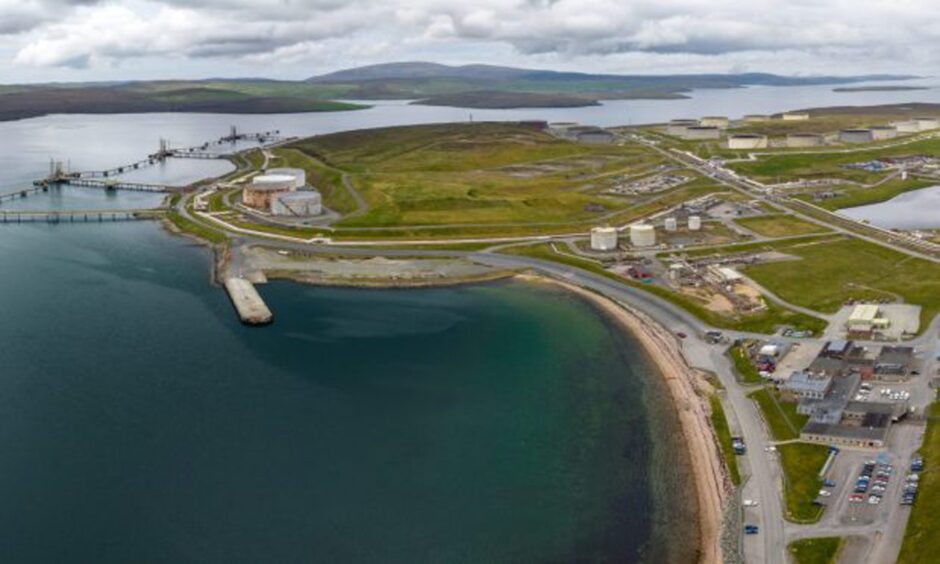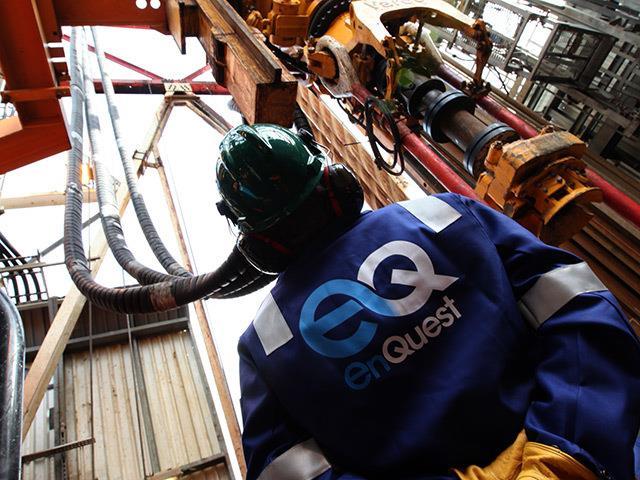
The UK government’s taxation policies risk losing out on billions of investment and cause “irreversible damage” to a strategically important industry, the boss of North Sea producer EnQuest (LON:ENQ) has warned.
EnQuest chief executive Amjad Bseisu said the firm has invested over £4billion in the UK and “has the capacity and opportunities to do so again”.
But while the independent North Sea producer was still looking for “transformative UK acquisition”, he said the firm would only look to acquire North Sea assets that don’t require too much investment.
He said: “Given the prevailing tax regime, we are targeting UK portfolios with limited capital reinvestment programmes.”
Instead the firm could shift its focus to South East Asia, particularly Malaysia where “the return on capital investment is compelling”.
Questions now remain over the future of the firm’s North Sea plans, including a range of low carbon and clean energy schemes at key industrial operations. Aberdeen-based EnQuest is the operator of some of the largest untapped developments in UK waters, Bentley and Bressay east of Shetland. Both are currently being developed and would be subject to a final investment decision later this year.
In its statement today, EnQuest said it was still “advancing” the Bressay gas import project as a tieback to the FPSO on its Kraken field. It added it would be running trials of hydrogenated vegetable oil as an alternative to diesel on the floating production unit as part of its efforts to reduce carbon emissions.
As operator of the Sullom Voe terminal on Shetland through its subsidiary, Veri Energy, the company also plans to invest in windfarms and green hydrogen. The venture also holds EnQuest’s four carbon capture and storage (CCS) licences, with the potential to sequester 10m tonnes of CO2 per annum.
Panmure Liberum analyst Ashley Kelty noted: “Due to the (nonsensical ) changes by the Labour Government to the UK fiscal regime, ENQ has indicated that it will carefully review further investment plans on the UKCS.”
He added: “Despite all the green exhortations and virtue signalling by Ed Miliband his government has yet to clarify the shape and form of the £21bn promised to develop CCS in the UK –as this will be the only way that the UK has any chance of meeting its stated decarbonisation targets.”
The firm’s warnings come after North Sea trade body Offshore Energies UK warned the cost of the Labour government’s tax policies to the public purse could reach £13billion as well as destroy 35,000 jobs across the energy supply chain.
Tax not (too) taxing
EnQuest has estimated the cost of Sir Keir Starmer’s policies, including the removal of incentives, will cost the firm $102.5million (£78.m).
Kelty also suggested that Labour’s tax strategy may actually backfire.
He said it was “worth noting that ENQ is in a better position than peers due to the large pool of tax losses (currently $1.9bn) and this will mean no CT (corporation tax) or supplementary charge will be payable for some time yet, which will ameliorate the pain of the EPL”.
In the firm’s update to the London Stock Market on its half year results, Bseisu blasted the UK Government’s planned policies.
He said: “We are disappointed with the ongoing application of the Energy Profits Levy despite operating in an environment where no windfall conditions exist.
“The current fiscal regime is causing irreversible damage to an indigenous and strategically important UK industry.
“The UK energy industry needs a progressive tax regime that recognises the maturity of the North Sea and re-establishes the UK as a globally competitive investment basin.
“The oil and gas sector is the key to a just energy transition, protecting the skills, jobs and resources required to deliver the decarbonisation projects of the future and, with stability and the right fiscal stimulus, can deliver material UK economic growth through billions of pounds of investment-ready projects.
“EnQuest has to date invested over £4 billion in the UK and has the capacity and opportunities to do so again.
“The group’s growth strategy remains robust, with a focus on delivering a transformative UK acquisition; utilising our differentiated operating capability and significant tax asset to deliver material incremental value.
“Given the prevailing tax regime, we are targeting UK portfolios with limited capital reinvestment programmes.
“Internationally, we are working on a number of growth opportunities in South East Asia where the return on capital investment is compelling.
“The work we have done over the past seven years to strengthen our balance sheet gives us choices, and we will continue to make value-adding strategic decisions for our shareholders.”
Half year results
The London-listed company’s gross profit for the first-half of 2024 stood at $233.7 million, compared with last year’s $287.1 million.
The company posted a profit after taxation of $30.3 million, for the six months ended June 30, compared with a loss of $21.2 million last year when the UK’s windfall tax for energy companies wiped out most of its earnings.
It reported realised oil prices of $83.40 per barrel for the period, compared to $75.80 last year.
More to follow.
Recommended for you

 © Supplied by EnQuest
© Supplied by EnQuest © Supplied by EnQuest
© Supplied by EnQuest